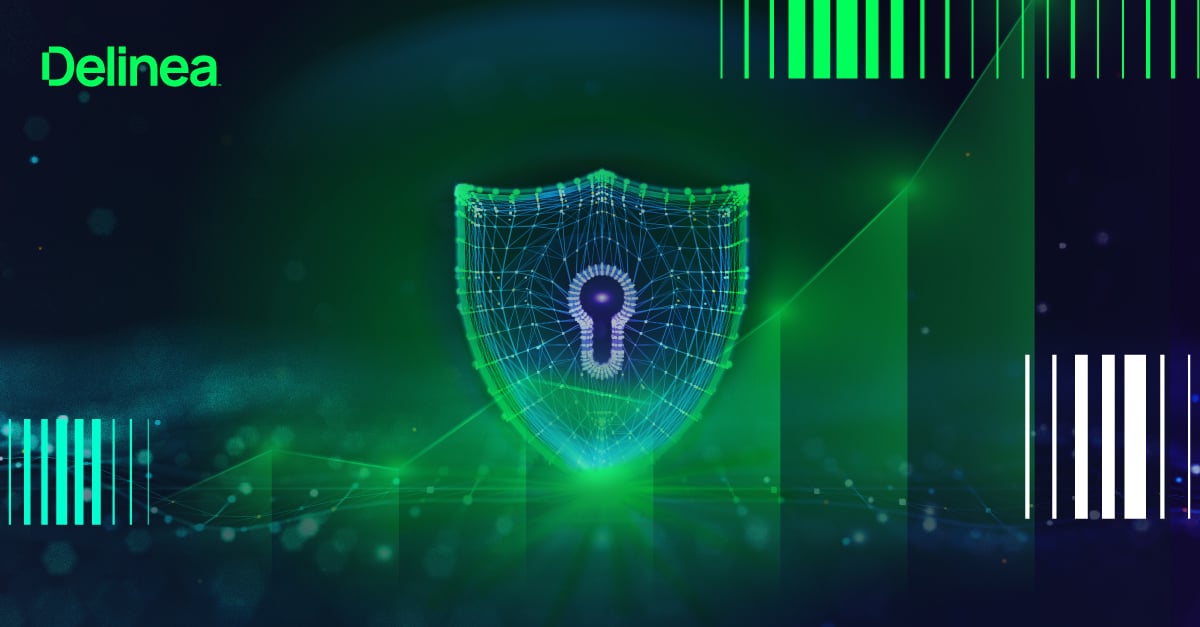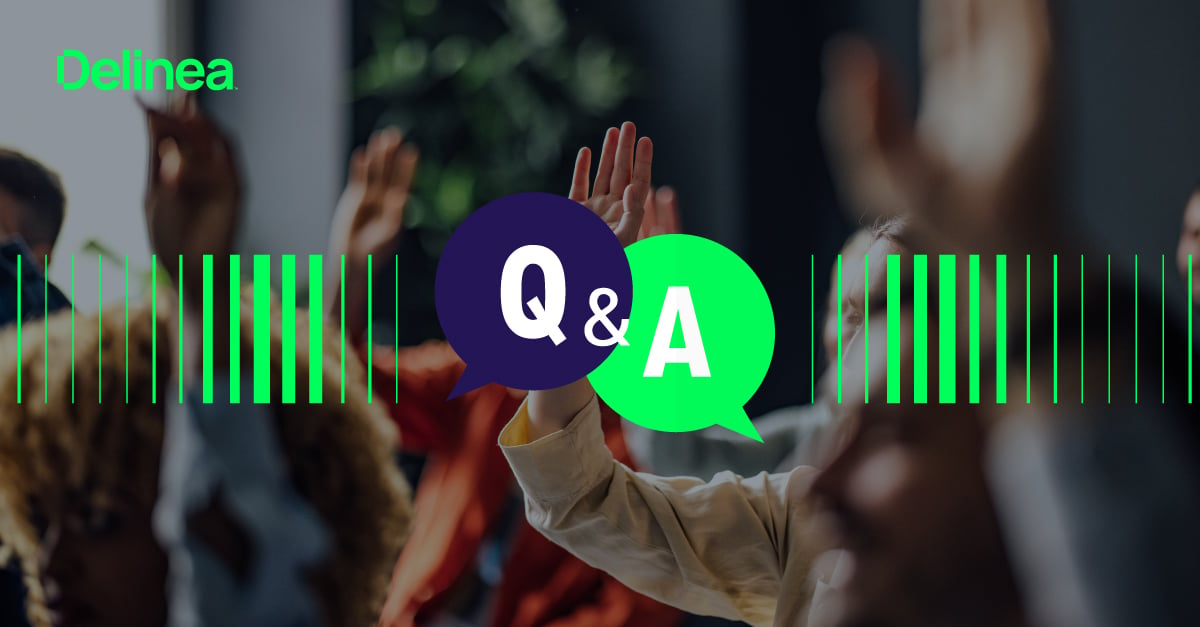Unlocking AI Agents with Delinea MCP Server
AI Agents are already in your environment. Can you trust them? You can with Delinea MCP Server.
Artificial intelligence (AI) isn't just writing code anymore; it's beginning to understand the way software comes together. Developers use GitHub Copilot to write infrastructure-as-code, IT ops teams are experimenting with copilots for cloud automation, and internal GPT-style tools are handling access requests and generating reports.
These AI agents are transforming how organizations design, build, and manage applications. They can generate production-ready code, stitch together APIs, and orchestrate complex workflows in minutes rather than weeks. The pace of innovation is breathtaking, but all of these agents have one thing in common: they act as identities.
.jpg?width=492&height=435&name=delinea-blog-in-post-overview-of-mcp-1%20(2).jpg)
Why AI agents create a new identity security problem
Today's enterprise workflows increasingly involve AI agents that need access to secrets, APIs, and infrastructure. They interact with sensitive systems, make privileged decisions, create new users, and in many cases, operate without traditional oversight or policy boundaries. Worse, their numbers are growing fast.
This surge in machine, app, and AI identities is expanding the identity attack surface in unpredictable ways. From an identity security perspective, it's a critical problem. Secrets can leak into prompts, and AI models can hallucinate actions like privilege escalation. Existing Privileged Access Management (PAM) tools simply weren't designed to handle autonomous software agents with privileged access. They were designed for human identities.
When you fail to secure AI-driven workflows with proper identity context, you expose yourself to both technical and operational risks. Secrets handled improperly by AI can be leaked or retained by models, introducing serious data breach potential. Even more concerning, AI-driven actions are often invisible to audit logs, making it nearly impossible to prove compliance or detect abuse. In the absence of formal identity governance for AI agents, teams are left to improvise risky workarounds. This lack of architectural foresight leaves a dangerous gap between what AI agents can do and what they should be allowed to do.
This is where Delinea MCP Server enters the picture.
What is the Model Context Protocol (MCP)?
The Model Context Protocol (MCP) is an open standard that lets large language models securely interact with external systems. Created by Anthropic and backed by OpenAI, Google, and others, MCP isn't a passing experiment; it's infrastructure for the future of AI. For enterprises, MCP represents the bridge between raw capability and responsible execution. It's quickly becoming the most straightforward and trusted method of giving AI agents the ability to access files, call APIs, and manage systems in a way that's standardized, secure, and supported by an entire ecosystem of industry leaders.
How Delinea MCP Server secures AI-driven workflows
Delinea's open-source MCP Server, now available for free on GitHub, is our technical response to a deeply practical problem. It gives developers a secure and scalable way to connect AI agents with the Delinea Platform without exposing sensitive data.
Instead of providing raw secrets to an AI model, which could be stored, shared, or leaked, Delinea MCP Server ensures that AI agents only use temporary access tokens to complete their tasks and keep the credentials themselves protected. Whether in a developer environment like VS Code, a chat interface for access requests, or a DevOps script running in CI/CD, every action is logged with identity context, including whether it was triggered by a human or an AI.
This ensures full traceability and auditability to adhere to compliance frameworks when configured.
Delinea MCP Server also supports multiple front ends. Whether it's a voice assistant, a browser-based LLM clone, or automated scripts, the protocol ensures that identity is always enforced and that secrets are never casually exposed. Importantly, Delinea MCP Server supports two-way interactions. AI agents can request access to resources (like vaults or admin APIs), and the MCP Server can validate requests, apply policies, and securely return the result, thereby keeping responses controlled and reducing the risk of unintended disclosure.
What does deploying Delinea MCP Server look like in practice? You can adopt the open-source version of Delinea MCP Server to build your own client and server components. For example, a developer uses Claude's natural language interface to ask for details about credentials vaulted in Delinea Secret Server. The server then queries the Delinea Platform via APIs, validates the request, and securely returns the response.
.jpg?width=723&height=360&name=delinea-blog-in-post-overview-of-mcp-3%20(1).jpg)
This way, the AI assistant gets the information it needs without revealing the actual credentials, and gives organizations a secure way to integrate AI into enterprise workflows with confidence.
Delinea’s commitment to secure AI
AI adoption isn't slowing down; it's accelerating. Development teams are embracing coding agents, DevOps pipelines are scaling through automation, and business leaders are under constant pressure to deliver more, faster. But without security built in, AI's promise can quickly turn into a liability.
By combining MCP with Secret Server through the Delinea Platform, enterprises can embrace this new wave of automation without compromising on control. Enterprises gain:
- Reduced risk: Secrets never spill into code, prompts, or logs, drastically lowering breach exposure. Operational Efficiency – Administrators and IT teams can automate user management, access control, and reporting through AI prompts.
- Compliance confidence: Every interaction is visible, auditable, and aligned with frameworks like SOC 2, ISO 27001, and FedRAMP.
- Cross-functional value: Developers, admins, compliance officers, and business leaders all benefit from the same secure foundation.
- Scalable trust: As AI agents evolve, Delinea ensures interoperability and security scale right alongside them.
At Delinea, we believe innovation, especially AI, should never come at the cost of security. Enterprises are eager to harness the power of AI, but doing so safely and effectively requires more than experimentation; it demands a foundation that strikes a balance between security, scalability, and usability.
By enabling organizations to integrate MCP capabilities into their custom AI agents with Delinea's MCP Server, the implementation helps establish verifiable trust through enforceable policies and transparent auditing, trust that is earned, not assumed. It brings structure and guardrails to a space that urgently needs both—all while reducing risk, improving productivity, and future-proofing your AI strategy.
This is how we're shaping the future of identity security, enabling you to confidently embrace the AI revolution while staying firmly in control.


